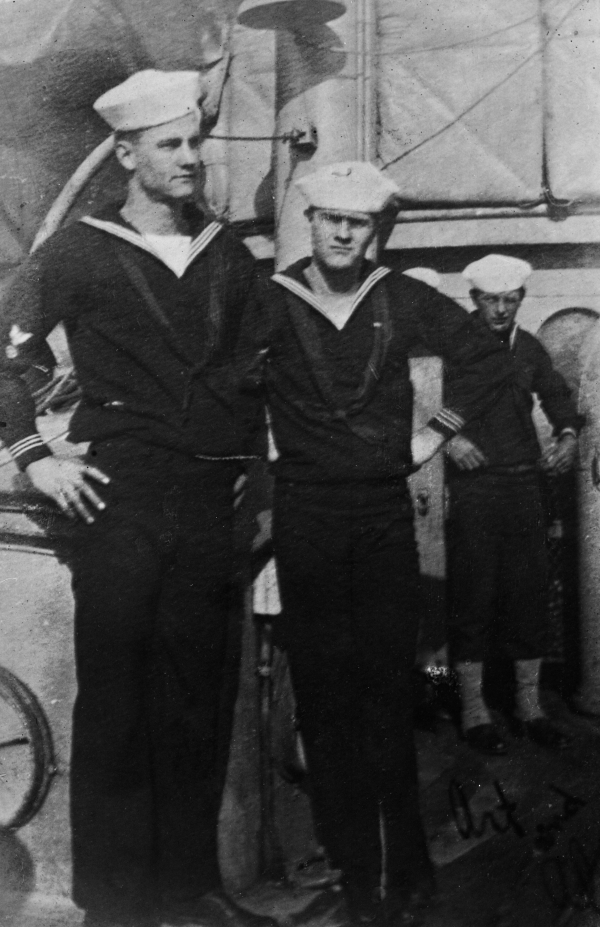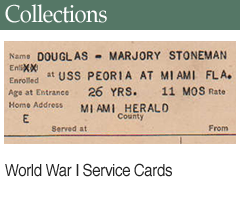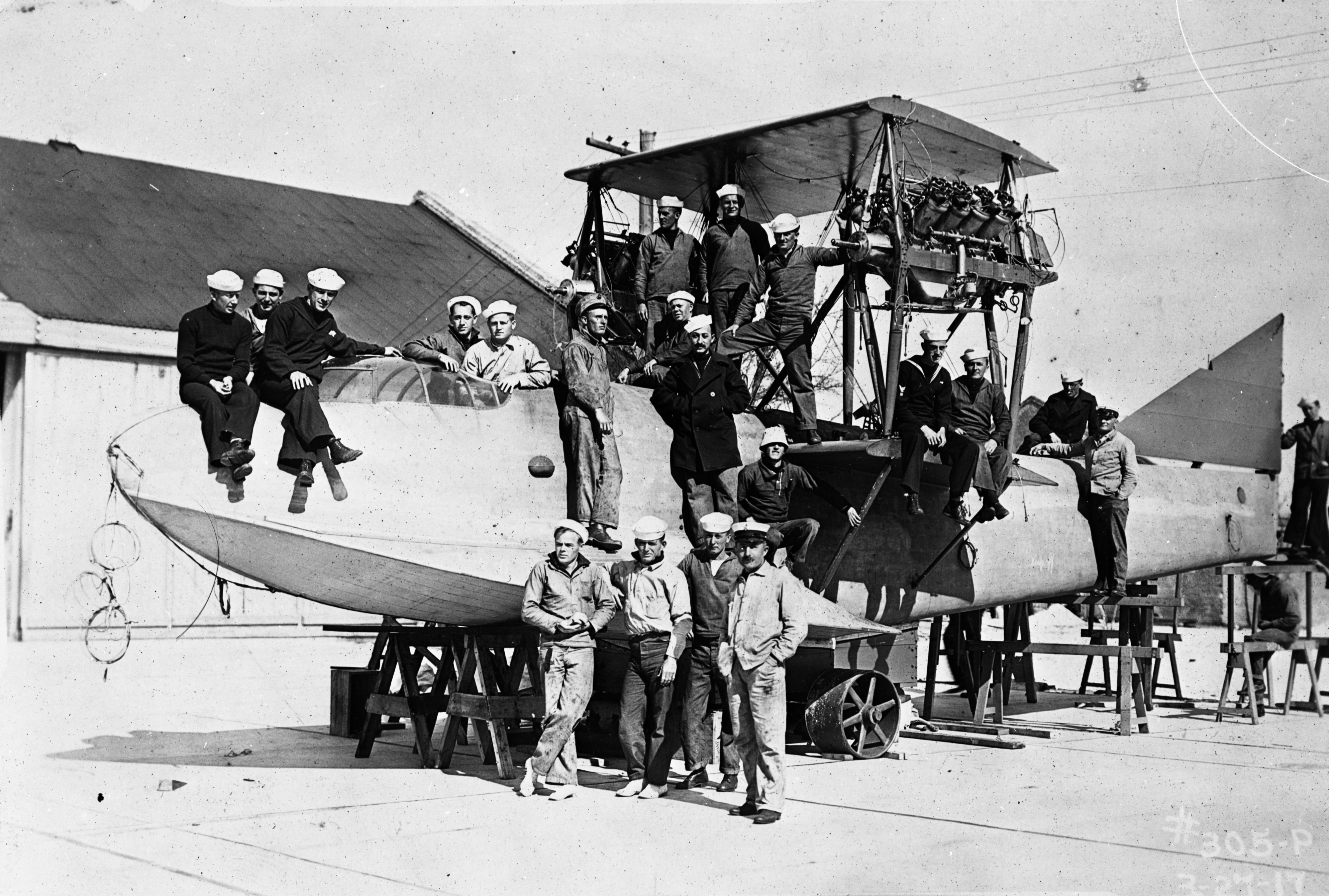Bevins Family Papers
Letters from a WWI Sailor
This collection contains a selection of 66 pieces of correspondence from the Bevins Family Papers, 1900-1936 (N2001-2). Spanning from 1914 to 1918, this selection of letters provides insight into the WWI-era experiences of Florida enlistees Arthur and Algy Bevins. In addition to letters, photographs from the Bevins Family Papers are also available online.
The bulk of the letters were written by Algy Bevins to his sister, Merie Rieck. In earlier letters, Bevins discusses life in Florida, his various jobs and personal aspirations.
After the U.S. entered WWI in 1917, Algy and his brother, Arthur Bevins, joined the U.S. Coast Guard. Subsequent correspondence details their service aboard the ill-fated U.S. Coast Guard cutter Tampa. On September 26, 1918, a German submarine sank the Tampa, killing all 131 people on board, including 35 Floridians. According to the U.S. Coast Guard, this incident marked the largest single loss of life by any American naval unit as a "result of known enemy action" during WWI.

Biographical Note:
In 1912, 20-year-old Arthur Lee Bevins and 16-year-old Algy Knox Bevins moved with their parents, William and Minnie Bevins, from Pennsylvania to Davenport, Florida, to homestead.
Their sister, Merie Bevins Rieck, stayed behind with her husband in Centerville, Pennsylvania, but maintained regular communication with the family, especially Algy.
In Davenport, Algy filled his leisure time with bodybuilding, fishing and hunting.
However, as this collection of letters reveals, finances were a constant struggle for the Bevins family, and Algy aspired to find a stable, well-paying vocation.
In addition to helping on the family farm, the ambitious young Algy worked odd jobs as a handyman and land surveyor while taking technical courses in civil engineering.
To make more money, Algy enlisted in the U.S. Army in 1916, working as a messman on the U.S. dredge Barnard. He planned to leave the service after building up his savings, but U.S. involvement in World War I altered his course.
Less than two weeks after the U.S. declared war on Germany on April 6, 1917, Algy and Arthur enlisted in the U.S. Coast Guard and went to work as coal heavers on the USCGC Tampa. Algy was later promoted to water tender. The pair saw the Coast Guard as an opportunity to travel and earn extra money.
Tasked with escorting Allied convoys along the Atlantic coasts, the younger Bevins was convinced of the Tampa's safety. "There are chances against us, but of not nearly so much consequence as trench warfare," he penned to his worried family at home.
After the Tampa met its demise in the Bristol Channel in 1918, the Bevins family received word of Algy and Arthur's passing. They privately preserved the wartime correspondence for the next 81 years.
When the Lakeland Ledger ran a story about the Tampa tragedy, it caught the attention of Bevins family friend, Videll Holley, who had possessed the letters since the 1980s. Holley donated the letters to the State Archives of Florida in 2001.

 Listen: The Latin Program
Listen: The Latin Program


